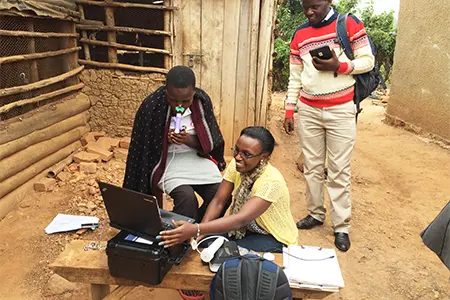Peggy Lai, MD, MPH, is studying a factor in indoor air pollution that is often overlooked: bacteria. Her interest in this area began when she was a pulmonary fellow, researching cotton workers in Shanghai, China. The cotton contained high levels of bacteria, and Dr. Lai examined how it affected workers' lung function. She went on to study bacteria in inner-city schools in Boston, and how it impacted students' asthma.
With a Biomedical Research Grant from the American Lung Association, Dr. Lai is now studying how microbes in the indoor environment change after the introduction of chickens to the environment in rural Uganda. She will be looking at how these chicken-specific microbes can colonize in the airways of people in contact with the chickens and affect their lung health.
Usually it is quite difficult to know exactly when a person is exposed to new bacteria. This study will solve that problem, by allowing researchers to study lung function and blood in people before and after they are given chickens to raise for the first time. The air in the home of participants will also be tested before and after the chickens are introduced.
"The chicken coop will be very close to the homes, so we think there may be changes in the home air," Dr. Lai explained. Participants will be given 15 chickens to start. If they successfully raise the chickens and are able to sell them for a profit, they will be given 50 and then eventually 100. "We want to improve their livelihood, but not at the expense of their health," she says. The ultimate goal is to find low-cost and effective ways to redesign the indoor environment in order to improve air quality, and reduce the risk of lung disease.
Twenty percent of participants are HIV-positive. The study will allow Dr. Lai to study whether immune suppression due to HIV affects the ability of chicken bacteria to colonize the airways.
The results of the study can be broadly applied to the study of lung disease, she says. "Bacteria exposure can sometimes be beneficial for health. Some research suggests exposure to bacteria might prevent asthma. But it can be dangerous, especially for older people's lungs. It's a fascinating aspect of indoor air pollution that hasn't gotten enough attention."
Page last updated: June 7, 2024



